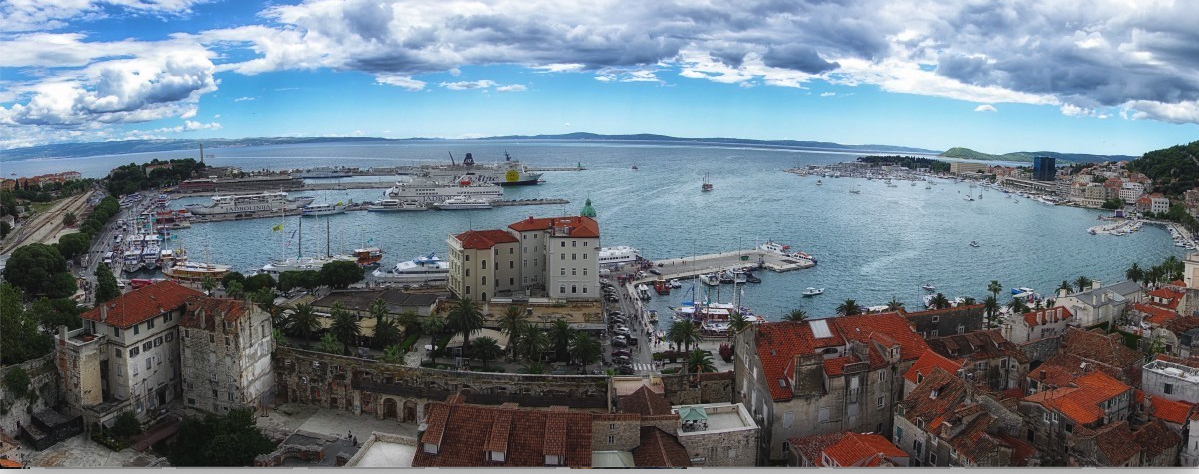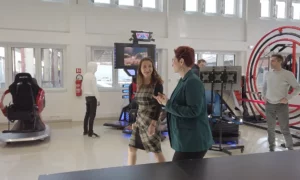(Editor’s note: Digital nomad Beth Hoke has traveled four times to Croatia since 2016, including three stays in Split as she moves in and out of the Schengen Area on her American passport. Most recently, she spent more than three months in Split between October and December 2018. Here’s her expat’s guide to Split.)
With a population of about 250,000 residents, Split is a pretty large city … the second-largest in Croatia, smaller only than Zagreb, the capital.
Split’s international vibe is the result of its universities as well as centuries of foreign influence. Foreign tourists really discovered Croatia circa 2000. But traders and invaders have been coming for a millennium including Romans, Turks and pretty much every European superpower. Centrally located, it is an ideal home base for day trips to the Adriatic islands, neighboring Balkan countries and other cities in Croatia.
With sea and sun, this is an exceptionally beautiful and affordable place to live. Not surprisingly, the number of expats is increasing as are the modern amenities they need, from co-working/startup spaces to educational opportunities.
Split has a healthy expat community whose members arrange regular social events regularly and actively participate in the conversation in several dedicated Facebook groups. If you’re heading to Split or already live there and need information in English, or you just want to hang out with people who speak your native language, check out these English language programs and services:
Bookstores
• The VBZ bookstore at the Mall of Split has a small English language selection of fiction and non-fiction titles.
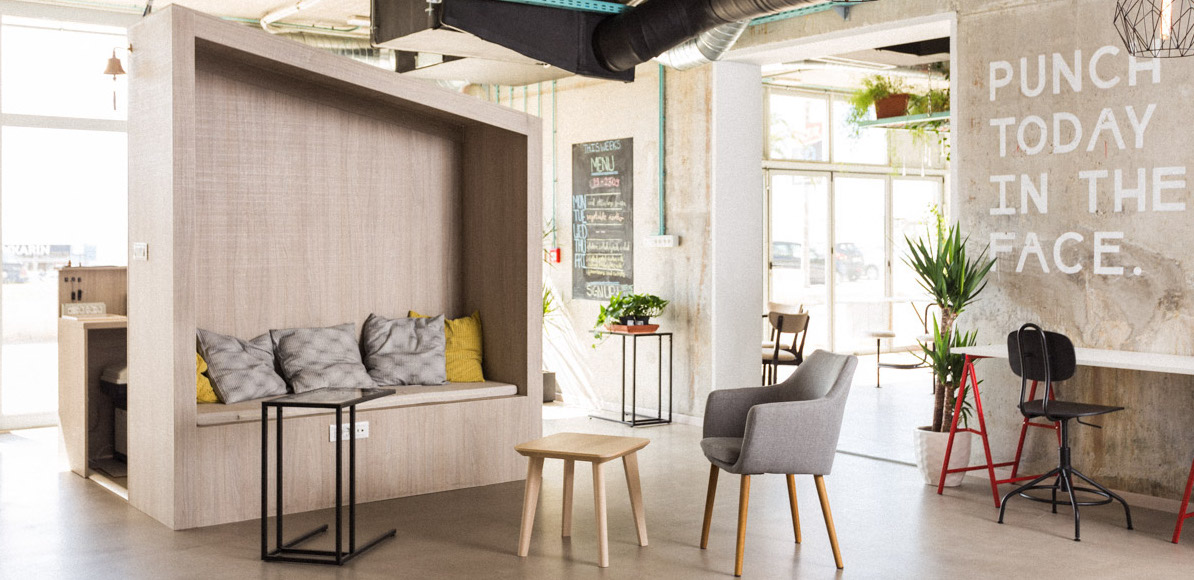
Coworking spaces
There are several coworking spaces in Split with multilingual staff and/or owners. These are great places to meet other expats who are always willing to serve as a resource for English-language business and social opportunities.
Affiliated with Remote Year, a global work/travel company that’s raised $12 million from VCs, WIP Coworking offers a wide range of programs and events in addition to the standard co-working amenities. Catering to a younger techie crowd, they were setting up for a programming session when I arrived.
The general manager, Mate Babic, is a Croatian native who recently returned home after living in Canada. The space is well equipped for solo workers and those who are there to collaborate with others. A large open workspace is bordered by a windowed conference room and five call booths for anyone who needs to have a private phone conversation. There are 70 seats available with plentiful standard and USB outlets.
All-access passes can be purchased on a daily, weekly or monthly basis.
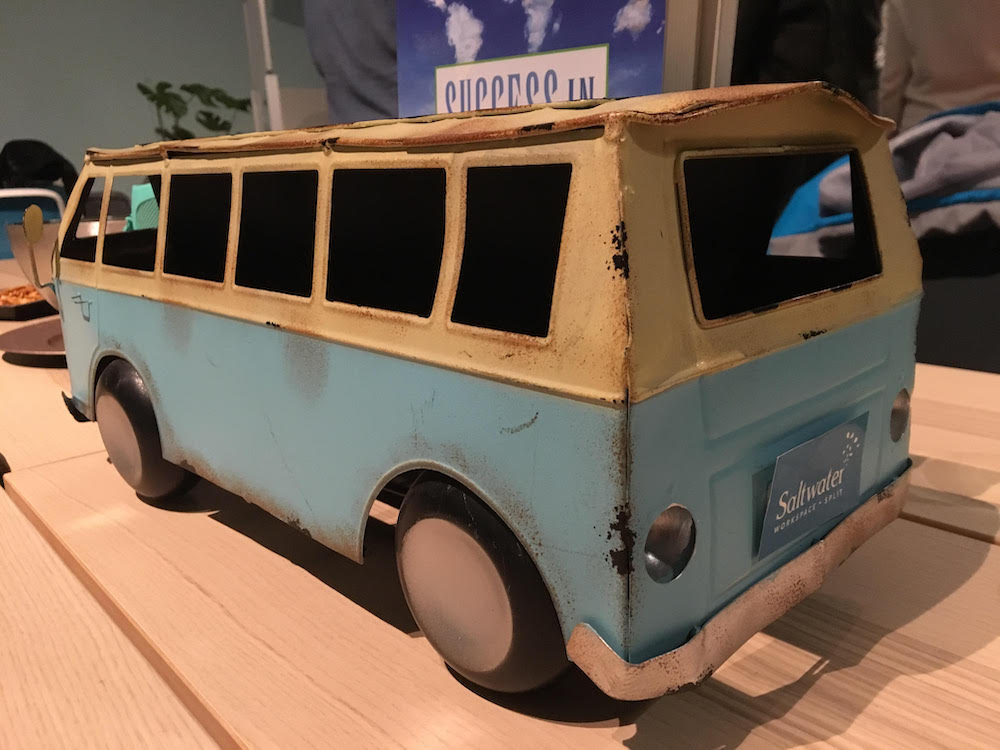
Saltwater, a women-owned coworking space right on the outskirts of Diocletian’s Palace. I had a little trouble finding it at first, but then noticed the website mentions that the giant bronze statue of Gregory of Nin is pointing the way.
Saltwater definitely has the female touch. The walls are painted Tiffany blue and the room is filled with plants. Bright orange Aperol Spritz beanbags on the floor contrast with the soft color of the walls and invite you to sink into their depths during breaks from work.
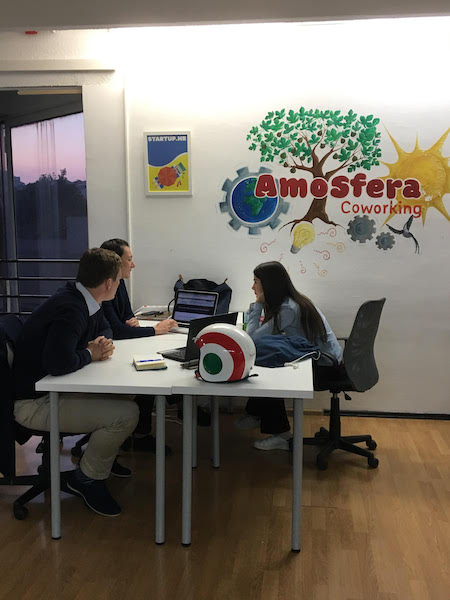 Although Saltwater has more of a feminine vibe, the owners welcome men and women to reserve a chair around their boardroom-sized tables or attend their monthly business events co-sponsored with Amosfera, another coworking space in Split.
Although Saltwater has more of a feminine vibe, the owners welcome men and women to reserve a chair around their boardroom-sized tables or attend their monthly business events co-sponsored with Amosfera, another coworking space in Split.
In a lively area near the university, Amosfera caters to the social entrepreneur. They offer hot desks and dedicated desks as well as a conference room that holds up to twenty people.
Their website includes a friendly offer of help with things like bicycle rentals, restaurant recommendations, and even visa questions. This makes the space seem less intimidating for the ordinary remote worker stopping by for their first visit. Niceties like a coffee station, book swap, and information center welcome local entrepreneurs and expats alike.
Like WIP and Saltwater, Amosfera is just a short walk from the beach and in close proximity to restaurants and shopping.
Education
• The Multilingual International School of Dalmatia in Split is an elementary school that teaches the national Croatian curriculum in English and Croatian.
This is something of a work in progress as the founders plan to offer Croatian-certified classes to all ages in an environment more suited to internationals.

• The University of Split School of Medicine has an integrated undergraduate and graduate medical school program that is taught in English.
From their website:
The School of Medicine in Split has four teaching programs: Medicine, Dental Medicine, Pharmacy (in collaboration with the Faculty of Chemical Technology) and Medical Studies in English. The Medicine program annually enrolls 90 students, Dental Medicine and Pharmacy enroll 30 each, and Medical Studies in English 60. The criterion for enrollment is success at the state final exams (Državna matura). The School of Medicine in Split started Medicine program in English in the school year 2011/12., when enrollment quota was 30, lately increased to 60 students.
Emergency Services
The city’s emergency services have English-speaking operators available. Dial 192 for the police, 193 for the fire department, and 194 for an ambulance. The general emergency number is 112.
Entertainment
• The Cineplexx at City Center One and the CineStar at the Joker Centar both show English language movies.
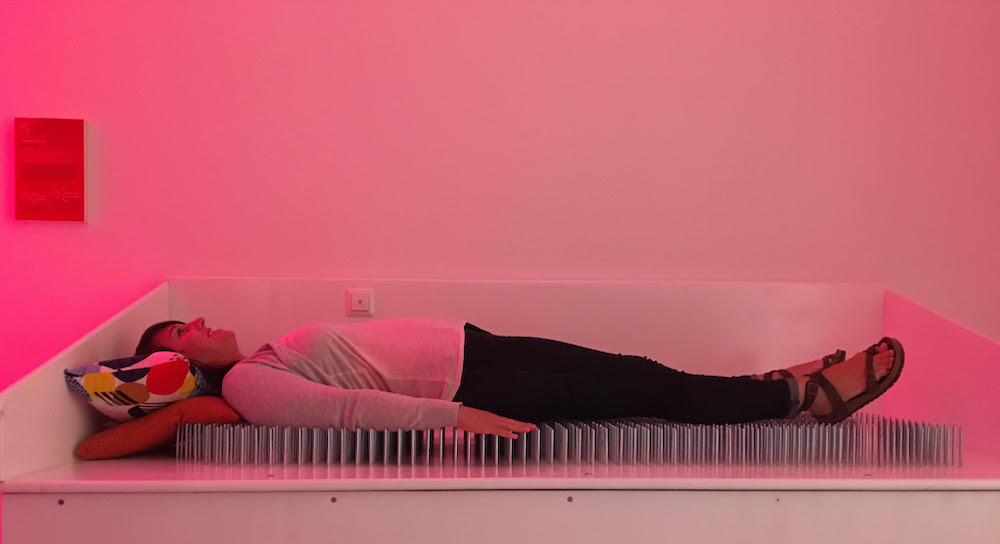
A VISITOR TO THE MUSEUM OF SENSES GETS ALL COMFY ON A BED OF NAILS
• The Museum of Senses at City Center One has English-speaking guides and is a fun way for families to learn more about Split through sensory activities.
• Split is on Croatia’s fabled coast, so this is a party destination, though not on the level of Zrce Beach on Pag or Markasa and the Rave Cave to the south. But still, there are dozens of clubs – some catering to tourists, others to locals.
The most famous are:
Here’s the most complete nightlife guide we found.
Food Delivery
When you want to order takeout, you’ll find that neither Deliveroo nor Grubhub operate in Split. The good news is that Dobartek.hr does. Though the website is in Croatian, if you open it in Google Chrome and use their translation feature, you’ll be able to order in English. The only tricky part is that you have to know which neighborhood you’re in. This map from Nomad List can help you figure that out.
Housing
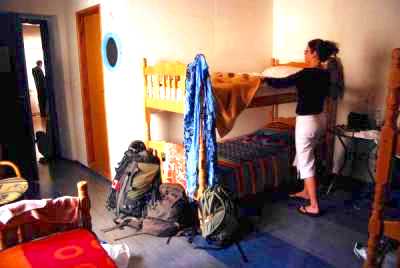
AL’S PLACE
• Airbnb
You can find English-speaking Airbnb hosts by clicking on the “More filters” tab and scrolling to the bottom of the page.
• There’s also Real Estate Croatia for long-term apartments
This hostel in the heart of Old Town is owned by a British expat and staffed with English-speaking employees.
The hostel has a kitchen, a common area and rooms at a great location near the seafront and close to the ferry terminals, bus and train station.
• There’s also Home & Away for long-term stays.
Legal
If you find that you need to consult with a lawyer while in Split, you can locate law offices with English-speaking staff on this list maintained by the United States Department of State or this more recently updated guide from the British government.
Medical
• The United States Department of State maintains a current list of medical facilities with English-speaking staff in Croatia. There are at least 200 physicians on the list with practices ranging from dermatology to gynecology.
• Citizens of the United Kingdom will find the NHS guide to healthcare in Croatia particularly helpful.
• Clinical Hospital Split is one of 30 hospitals in Croatia, with 15 in Zagreb alone. Most of the websites are only in Croatian.
Tourism
The owner and operator of Private Guides in Croatia is a native English speaker and can arrange for private tours of Split.
The Tourist Information Centres in and around the city have multilingual staff members and English language guidebooks and pamphlets.
Other
Meetings are held throughout the week at several locations around the city. Though the primary language at the meetings is Croatian, there is always someone available to translate for English-speaking visitors.
We’d love to have your help in expanding our guide. If you know of English language programs and/or resources that we should consider adding, please comment below or send us a message on Facebook.

BETH
About the author:
Beth Hoke rejoined the expat life after spending her childhood in Europe and the United States, then settling in Chicagoland to raise two daughters.
Now an empty nester, she is roaming Europe, armed with a TEFL certificate and an online position teaching English for EF.
Beth has been traveling around Europe for two years. She’s filed posts for Dispatches Europe from at least six countries including Italy, Germany, Croatia, and Madeira, Portugal.
You can see all her posts here.


